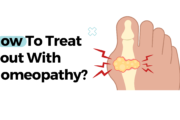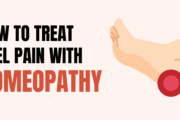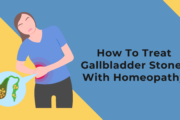Summary: Homeopathy offers a personalized approach to managing blood pressure. It’s safe, with no side effects, and targets the root cause for sustainable health. Homeopathic Treatment for Blood Pressure is a personalized, safe method for BP management.
What is Blood Pressure or BP?
Blood pressure is the force exerted on blood vessel walls by the blood flowing. It is a vital physiological parameter that indicates the health of the heart. The blood pressure is measured by two values: systolic and diastolic.
Systolic blood pressure is the force that the heart exerts on the blood vessels as it pumps blood into the arteries. Diastolic, however, is the force exerted by the heart when it rests between beats.
The blood pressure is expressed in millimeters (mmHg), and the systolic over diastolic ratio is usually expressed as a fraction. A blood pressure reading between 120/80mmHg, for example, is within the range of normal.
The classification of blood pressure readings is as follows:
- Normal: In a normal heart, the systolic pressure, which measures the pressure in your arteries when your heart beats, and the diastolic pressure, which measures the pressure when your heart rests between beats, are both below 120 mmHg.
- Elevated: If the systolic pressure is between 120-129 mmHg and the diastolic pressure is below 80 mmHg, it is classified as elevated.
- Hypertension Stage 1: When the systolic pressure is between 130-139 mmHg or the diastolic pressure is between 80-89 mmHg, it falls under the category of hypertension stage 1.
- Hypertension Stage 2: Hypertension stage 2 is defined as a systolic or diastolic pressure greater than 140 millimeters of mercury or 90 millimeters of mercury.
- Hypertensive crisis: A hypertensive crisis occurs when the systolic pressure exceeds 180 mmHg and/or the diastolic pressure surpasses 120 mmHg. This requires immediate medical attention.
Types of Blood Pressure
There are two primary types of blood pressure: systolic pressure and diastolic pressure. These measurements reflect different aspects of the cardiac cycle and provide important information about cardiovascular health.
- Systolic Blood Pressure (SBP):
Systolic pressure is the highest number on a blood pressure reading, reflecting the pressure in arteries as the heart pumps. This occurs when the heart contracts. Factors such as force of the heart’s contraction, volume of blood and artery elasticity can affect systolic pressure.
- Diastolic Blood Pressure (DBP):
Diastolic pressure is the lower value in a blood pressure reading. It reflects factors like peripheral resistance, arterial elasticity, and blood flow accommodation during the resting phase of the heart.
Blood pressure readings are typically expressed as the systolic pressure over the diastolic pressure (e.g., 120/80 mmHg). Both systolic and diastolic blood pressure measurements are important in evaluating an individuals cardiovascular health and determining their blood pressure category.
Causes of Blood Pressure
Various factors, including both modifiable and non-modifiable causes, can influence blood pressure. Here are some common causes of blood pressure fluctuations and conditions associated with high blood pressure:
- Age: As we age, blood pressure tends to increase. Blood vessels becoming less flexible and rigid with age increases the risk of having high blood pressure.
- Genetics and Family History: People with a history of high blood pressure are more susceptible to developing it. Genetic factors can cause abnormalities in blood vessel function and regulation.
- Lifestyle Factors:
- Poor Diet: Low potassium and high sodium (salt) can cause high blood pressure. A diet that is high in processed food, sugary drinks, and fatty foods may be harmful.
- Physical Inactivity: Sedentary lifestyles and lack of exercise can increase blood pressure.
- Obesity: Hypertension is increased by being overweight or obese.
- Tobacco and Alcohol Use: Smoking and excessive drinking can temporarily raise blood pressure and contribute to chronic hypertension.
- Underlying Medical Conditions:
- Kidney Disease: Impaired kidney function can disrupt the body’s fluid and electrolyte balance, leading to high blood pressure.
- Endocrine Disorders: Conditions such as adrenal gland disorders, thyroid disorders, and hormonal imbalances can influence blood pressure regulation.
- Diabetes: Uncontrolled diabetes can cause damage to blood vessels, which in turn contributes to high blood pressure.
- Sleep Apnea: Blood pressure can be raised by breathing pauses during sleep.
- Stress: Chronic stress and high levels of emotional or psychological stress can temporarily elevate blood pressure. Prolonged exposure to stress can contribute to the development of chronic hypertension.
- Medications and Supplements: Certain medications, such as oral contraceptives, nonsteroidal anti-inflammatory drugs (NSAIDs), and some prescription drugs, can cause temporary increases in blood pressure. Additionally, some herbal supplements and over-the-counter medications may affect blood pressure levels.
How To Treat Blood Pressure with Homeopathy?
Homeopathy offers a holistic approach to treating high blood pressure (hypertension) by considering the individual’s unique symptoms and overall health. Homeopathic treatment aims to stimulate the body’s inherent healing abilities and restore balance.
A qualified homeopathic practitioner takes into account the person’s constitutional characteristics, emotional well-being, and lifestyle factors to tailor the treatment. The focus is on addressing the underlying causes of high blood pressure rather than simply suppressing the symptoms.
In addition to the individual remedies, lifestyle changes such as a nutritious diet, regular physical activity, stress management techniques, and maintaining a healthy weight are usually recommended.
Homeopathic treatment for high blood pressure aims to support the body’s natural healing processes, promote overall well-being, and provide a holistic approach to managing hypertension. Regular monitoring of blood pressure and collaboration with a healthcare provider is essential for comprehensive care.
Homeopathic Treatment for High Blood Pressure
High blood pressure (hypertension) is treated with homeopathy by addressing the underlying causes. A qualified homeopathic practitioner considers the person’s unique symptoms, overall health, and constitutional characteristics. They conduct a thorough evaluation to understand the specific pattern of symptoms and prescribe remedies accordingly.
Homeopathic treatment focuses on stimulating the body’s innate healing abilities and restoring balance. It takes into account physical, emotional, and lifestyle aspects, aiming to address the root causes of hypertension.
In addition to prescribed medications, lifestyle modifications such as exercise, stress reduction, a healthy diet, and maintaining a healthy body weight are often recommended. It is essential to work with a health professional and monitor your blood pressure regularly in order to manage high blood tension.
Homeopathic Treatment for Low Blood Pressure
Homeopathic treatment for low blood pressure (hypotension) aims to address the underlying causes and restore balance in the body. The approach in homeopathy is highly individualized, with remedies prescribed based on a person’s unique symptoms, constitution, and overall health. Some commonly used homeopathic remedies for low blood pressure include Aconite, Gelsemium, Nux Vomica, and Carbo Vegetabilis.
These remedies are chosen based on the specific symptoms presented, such as dizziness, weakness, fainting, or fatigue. It is important to remember that there is no scientific evidence supporting homeopathy’s effectiveness in treating low blood pressure.
Therefore, it is crucial to consult with a qualified homeopathic practitioner for personalized advice and to consider conventional medical management as needed to ensure proper evaluation and treatment.
Best Homeopathic Medicines To Treat Blood Pressure
The top homeopathic medicines to manage high blood pressure (HBP) are Aconitum Napellus, Glonoinum, Crataegus Oxyacantha, Nux vomica and Natrum Mur. The most effective medicines for low blood pressure are Gelsemium, China, Naja and Arsenicum Album.
Best Homeopathic Medicines for High Blood Pressure
Homeopathy medicine for high BP offers a natural and holistic approach to treating high blood pressure. Here are some of the best homeopathic medicines for high blood pressure:
- Aconitum Napellus: Aconitum Napellus is used for managing high blood pressure along with anxiety and restlessness.
- Natrum Mur: It is one of the most common homeopathic remedies used for high blood pressure. This remedy is especially effective for people who are sensitive to heat and have a tendency toward emotional stress.
- Belladonna: Belladonna is a good remedy for high blood pressure caused by sudden stress or emotional shock. It can also help relieve symptoms such as headaches and dizziness.
- Glonoinum: Glonoinum is a good remedy for high blood pressure caused by exposure to heat or sunlight. It can also help relieve symptoms such as headaches and dizziness.
- Rauwolfia Serpentina: Rauwolfia Serpentina is useful for individuals with high blood pressure due to anxiety or stress. It can also help relieve symptoms such as palpitations and headaches.
- Crataegus: Crataegus is used to treat high pressure caused by poor circulation. Crataegus can help with symptoms like fatigue and shortness of breath.
- Nux Vomica: Nux Vomica is used to treat high blood pressure caused by sedentary lifestyles.
Best Homeopathic Medicines for Low Blood Pressure
Homeopathy offers several remedies that can help with low blood pressure, also known as hypotension. Here are some of the best homeopathic medicines for low blood pressure:
- Gelsemium: Gelsemium is a good remedy for low blood pressure caused by emotional stress or anxiety. It can also help relieve symptoms such as dizziness and weakness.
- Natrum Mur: Natrum Mur is a good remedy for low blood pressure caused by dehydration or excessive sweating. It can also help relieve symptoms such as fatigue and headache.
- Carbo Veg: Carbo Veg is a good remedy for low blood pressure caused by poor circulation. It can also help relieve symptoms such as weakness and shortness of breath.
- China: China is a good remedy for low blood pressure caused by loss of fluids from the body, such as after a prolonged illness or excessive sweating. It can also help relieve symptoms such as weakness and dizziness.
- Arsenicum Album: Arsenicum Album is a good remedy for low blood pressure caused by weakness and exhaustion. It can also help relieve symptoms such as anxiety and restlessness.
Best Homeopathic Remedies for High Blood Pressure
There are several homeopathic remedies for high blood pressure that can help alleviate symptoms of high blood pressure. Here are some of the most commonly recommended ones:
- Belladonna: This remedy is often used for individuals who experience sudden, intense spikes in blood pressure, with a pounding or throbbing headache and flushed face.
- Nux Vomica: This remedy may be helpful for individuals with high blood pressure caused by stress, anxiety, or lifestyle factors such as overeating or excessive alcohol consumption. It can also be useful for those with indigestion or constipation.
- Natrum Muriaticum: This remedy is sometimes recommended for individuals with high blood pressure due to emotional stress or grief. It may also be helpful for those with cold hands and feet or who experience headaches or dizziness.
- Lachesis: This remedy is often used for individuals with high blood pressure who feel worse in hot weather and who experience palpitations or a feeling of tightness in the chest.
- Aurum Metallicum: This remedy may be useful for individuals with high blood pressure due to emotional stress or depression. It can also be helpful for those with heart palpitations or difficulty sleeping.
Best Homeopathic Remedies for Low Blood Pressure
Several homeopathic remedies can help alleviate low blood pressure symptoms. Here are some of the most commonly recommended ones:
- Natrum Muriaticum: This remedy is often used for people who experience dizziness when standing up or fainting spells. It can also be helpful for those with a weak pulse and cold hands and feet.
- Gelsemium: This remedy may be useful for individuals who feel weak and sluggish, with heavy eyelids and a slow pulse. It is often used for cases of low blood pressure caused by emotional stress or anxiety.
- Carbo Vegetabilis: This remedy is sometimes recommended for individuals who feel faint and dizzy, with a weak pulse and clammy skin. It can also be helpful for those who experience shortness of breath or nausea.
- Lycopodium: It is used to treat individuals who feel weak and tired, particularly in the morning. This remedy may be beneficial for people who have digestive problems such as bloating and constipation.
- Arsenicum Album: This remedy may be useful for individuals who experience weakness and exhaustion with a rapid but weak pulse. It can also be helpful for those with anxiety or restlessness.
Lifestyle Changes for Blood Pressure Patients
Lifestyle changes are crucial in the management of both high blood tension (hypertension) and low blood pressure (hypotension). Here are some suggestions for each condition:
Lifestyle changes For High Blood Pressure (Hypertension):
- Maintain a healthy diet: Dietary Approaches To Stop Hypertension (DASH), which emphasizes fruits and vegetables, whole grains, lean protein, and low-fat dairy, is a good diet to follow. Avoid processed foods and limit your sodium intake.
- Exercise regularly: At least 150 minutes per week, engage in moderate aerobic exercise such as cycling, swimming, or jogging. Consult your doctor before beginning an exercise program.
- Maintain a healthy weight: Aim to have a BMI within the range of normal. If you are obese or overweight, weight loss can reduce blood pressure.
- Limit alcohol intake: Moderate alcohol consumption for women is characterized by consuming up to one drink per day, whereas for men, it involves consuming up to two drinks per day. It is crucial to acknowledge that alcohol intake has the potential to raise blood pressure levels.
- Quit smoking: Tobacco smoking has the potential to harm blood vessels, thereby increasing the risk of cardiovascular diseases. By quitting smoking, individuals can experience improvements in their overall health, including lower blood pressure levels.
- Reduce stress: Relax by engaging in activities and hobbies that you enjoy.
- Limit caffeine: Although moderate consumption of caffeine is generally considered safe by most people, excessive intake may temporarily increase blood pressure. If caffeine affects your blood pressure, you should limit or avoid it.
Lifestyle changes For Low Blood Pressure (Hypotension):
- Stay hydrated: Drink an adequate amount of fluids to maintain proper blood volume. This can include water, herbal teas, and other hydrating beverages unless advised otherwise by your doctor.
- Increase salt intake: In consultation with your healthcare provider, you may be advised to increase your salt intake to help raise blood pressure slightly. This recommendation is not suitable for all, particularly those with kidney problems.
- Eat regular, balanced meals: To prevent sudden drops in blood pressure after large meals, avoid skipping meals. Instead, aim to eat regular, balanced meals.
- Rise slowly: When transitioning from lying down or sitting to standing, do so gradually to allow your body to adjust and prevent a sudden drop in blood pressure. This is particularly important when getting out of bed in the morning.
- Wear compression stockings: Compression stockings help to improve blood circulation, prevent blood from pooling on the legs and raise blood pressure.
- Avoid hot environments: Exposure to heat can lead to the dilation of blood vessels, which can subsequently lower blood pressure. It is advisable to take necessary precautions during hot weather, including avoiding hot baths or saunas, in order to prevent potential impacts on blood pressure levels.
- Exercise regularly: It is possible to elevate blood pressure levels by regularly participating in low-impact physical activities such as walking, swimming, or cycling.
In conclusion, homeopathy offers a natural and effective alternative for managing blood pressure symptoms. By addressing the root cause of the condition through personalized treatment plans, homeopathic remedies can help regulate blood pressure levels and promote overall wellness without the harmful side effects of conventional medications.
Are you still suffering from blood presssure? It is important to seek out for a homeopathic treatment for blood pressure. With the right guidance and support, homeopathy doctors can offer a safe and sustainable approach to managing blood pressure and maintaining optimal health.
FAQS
Which homeopathic medicine is best for high blood pressure?
Belladonna and Nux Vomica are common remedies, as well as Lachesis, Natrum Muriaticum and Aurum Metallicum.
What is the best homeopathic remedy for high blood pressure?
Commonly recommended homeopathic remedies for high blood pressure include Belladonna, Nux Vomica, Natrum Muriaticum, Lachesis, Aurum Metallicum, Glonoine, and Rauwolfia Serpentina, but the most appropriate remedy will depend on the individual’s unique symptoms and underlying causes.
Can homeopathy cure blood pressure permanently?
No scientific evidence supports homeopathy as a permanent cure for high blood pressure. Hypertension requires lifelong management. Consult a healthcare professional for evidence-based treatments to control and manage the condition effectively.
Can high BP be cured by homeopathy?
Hypertension is often a chronic condition that requires ongoing management. It is important to seek guidance from a healthcare professional to ensure accurate diagnosis, thorough assessment, and appropriate treatment of high blood pressure. They can provide evidence-based treatment options and guidance to help control and manage the condition effectively.




